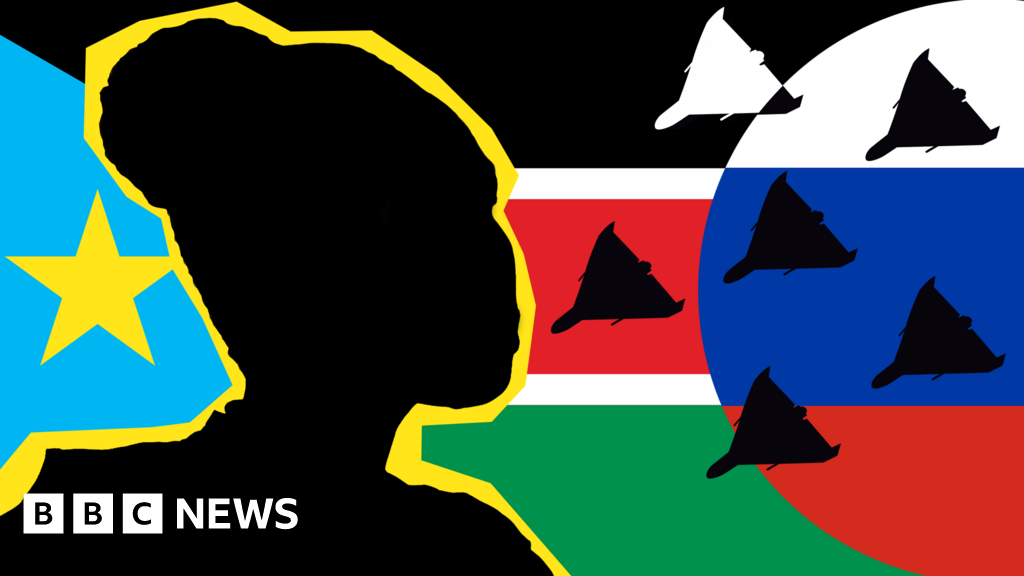'My skin was peeling' - the African women tricked into making Russian drones

```html African Women Tricked into Making Russian Drones, Sparking Investigation
Young women from across Africa are being lured to Russia with promises of professional training and well-paying jobs, only to find themselves working in dangerous conditions assembling drones used in the conflict in Ukraine. The Alabuga Start programme, operating within the Alabuga Special Economic Zone in the Republic of Tatarstan, is facing accusations of deception and exploitation, prompting investigations and warnings from African governments.
Recruitment Programme Under Scrutiny
The Alabuga Start programme (AS) targets women aged 18-22, primarily from Africa but also increasingly from Latin America and South-East Asia. Advertisements promise training in fields like logistics, catering, and hospitality. However, testimonies are emerging that paint a starkly different picture, with recruits alleging they were misled about the nature of the work and forced to assemble drones under hazardous conditions.
Adau, a 23-year-old from South Sudan, shared her experience with the BBC, requesting anonymity due to safety concerns. She described being recruited through an advert sponsored by the South Sudanese Ministry of Higher Education, promising a scholarship and training in technical fields. Upon arrival in Alabuga, she and other recruits were assigned to a drone factory, despite having applied for different roles. "We all ended up working in the drone factory," she said, adding that they had signed non-disclosure agreements preventing them from discussing their work.
Dangerous Working Conditions and Low Pay
Adau described the harsh realities of working in the drone factory, including exposure to chemicals that caused skin irritation. "When I got home I checked my skin and it was peeling," she recounted. She also highlighted the significant deductions from their promised salaries, citing expenses for rent, language classes, and even penalties for minor infractions. While promised $600 per month, she claimed she only received a fraction of that amount.
The Alabuga programme denies using deception and maintains that all job fields are listed on their website. They also state that salaries depend on performance and workplace behaviour. However, the discrepancies between the advertised opportunities and the experiences of many recruits raise serious concerns.
Expert Analysis: The Geopolitical Implications
Spencer Faragasso, from the Institute For Science And International Security, notes that the Alabuga Special Economic Zone is, in reality, a war production facility. "Russia has openly admitted that they are producing and building Shahed 136 drones there," he states. He highlights the deceptive nature of the recruitment, where women are promised valuable opportunities but ultimately find themselves contributing to Russia's military efforts. "On the surface, this is an amazing opportunity... But, in reality, when they're brought to Alabuga, they have a harsh awakening that these promises are not kept."
Ukraine Drone Strike Highlights the Risks
The dangers of working in Alabuga were further underscored by a Ukrainian drone strike on the Special Economic Zone in April 2024. Adau recounted waking up to shattered windows and an explosion, witnessing a drone strike on a nearby hostel where many of the recruits lived. This incident brought the reality of their situation into sharp focus, confirming that they were targets due to their involvement in drone production.
Historical Context: Russia's Engagement with Africa
This situation unfolds against a backdrop of increasing Russian engagement with African nations. Russia has been actively seeking to strengthen its political and economic ties across the continent, often presenting itself as an alternative partner to Western powers. This includes offering scholarships, military cooperation, and investment opportunities. However, concerns have been raised about the nature of these partnerships and the potential for exploitation.
Dr. Imani Brown, a specialist in African-Russian relations at the University of Cape Town, explains: “Russia’s engagement with Africa is multifaceted. While some partnerships are mutually beneficial, others raise concerns about transparency and equitable outcomes. The Alabuga case highlights the need for greater scrutiny of recruitment programmes and the protection of vulnerable workers.”
South African Government Investigates
The South African government has launched an investigation into the Alabuga Start programme following allegations of human trafficking. They have also issued warnings to citizens against signing up. The investigation aims to determine the extent of the deception and exploitation involved and to prevent further recruitment of South Africans into potentially dangerous situations.
The Plight of Trapped Workers
Adau managed to return home with the help of her family, but she says many women are unable to afford the return flight and are effectively trapped in Alabuga. The combination of low pay, significant deductions, and the seizure of passports leaves them vulnerable and dependent on the programme. Adau expressed her distress at contributing to the conflict in Ukraine: "It felt horrible having a hand in constructing something that is taking so many lives." ```
Originally sourced from: BBC News Africa
